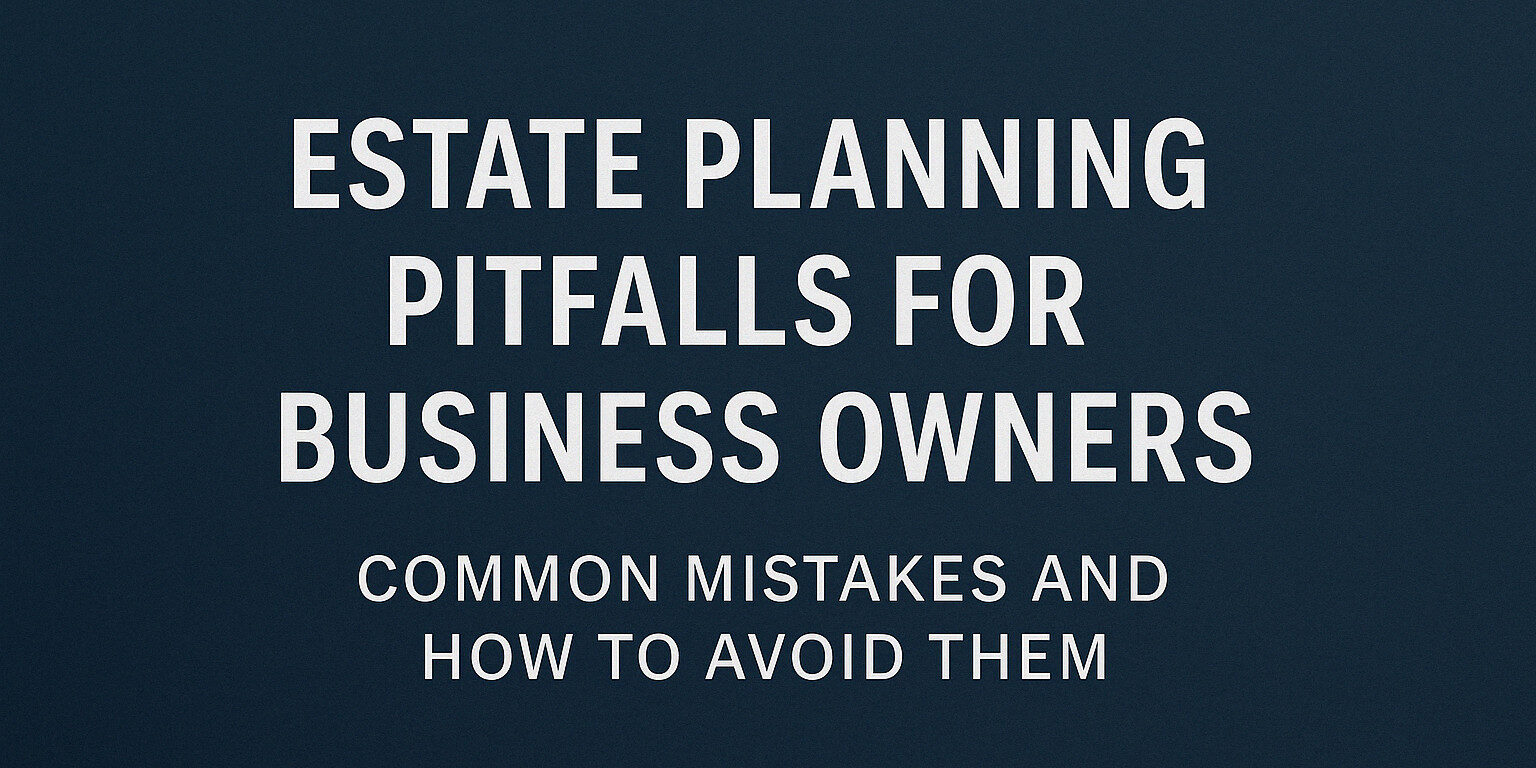Estate planning is a critical part of protecting your personal wealth, but for business owners, it’s even more complex. Your business is likely one of your largest assets, and without a comprehensive plan, it could face uncertainty, tax burdens, or even dissolution upon your death or incapacity.
Below are some of the most common estate planning mistakes business owners make and how to avoid them.
1. Failing to Include the Business in the Estate Plan
Many business owners spend years building their company but forget to legally account for it in their estate plan. This can lead to:
- Probate delays
- Unplanned ownership transfers
- Business disruption or closure
What to do:
Ensure your business interests are explicitly included in your estate documents, either via a will, trust, or buy-sell agreement.
2. No Succession Plan in Place
If something happens to you, who will lead the business? How will ownership be transferred?
Without a clear succession plan, your business could face leadership gaps, ownership disputes, or valuation issues.
What to do:
Develop a succession plan that includes:
- Named successors or buyers
- Transition timelines
- Funding mechanisms (e.g., life insurance)
- Buy-sell agreements among partners or family members
3. Improper or Outdated Business Valuations
Your business’s value impacts everything from estate taxes to equitable distribution among heirs. Relying on a guess—or not updating the valuation regularly—is a major risk.
What to do:
Get a formal business valuation, and update it periodically. Use this value for gift planning, buy-sell agreements, and equitable asset distribution.
4. Overlooking Tax Consequences
Without tax planning, your heirs may face a large estate tax bill and limited liquidity to pay it especially if most of your wealth is tied up in the business.
What to do:
Work with legal and financial professionals to:
- Leverage valuation discounts
- Use trusts to minimize estate tax exposure
- Plan for liquidity (e.g., life insurance or cash reserves)
5. Ignoring Personal and Business Asset Separation
Some business owners commingle business and personal assets, which can create legal and tax issues when passing on either.
What to do:
Maintain clear legal separation between business and personal assets. Use appropriate entity structures (e.g., LLCs, S Corps) and document all transfers.
Final Thoughts
As a business owner, your estate plan isn’t just about distributing assets, it’s about ensuring your business legacy continues smoothly. Avoiding these common mistakes can save your family from stress and financial hardship later.
Need help reviewing your estate plan with your business in mind? Contact our firm for a confidential consultation today.







